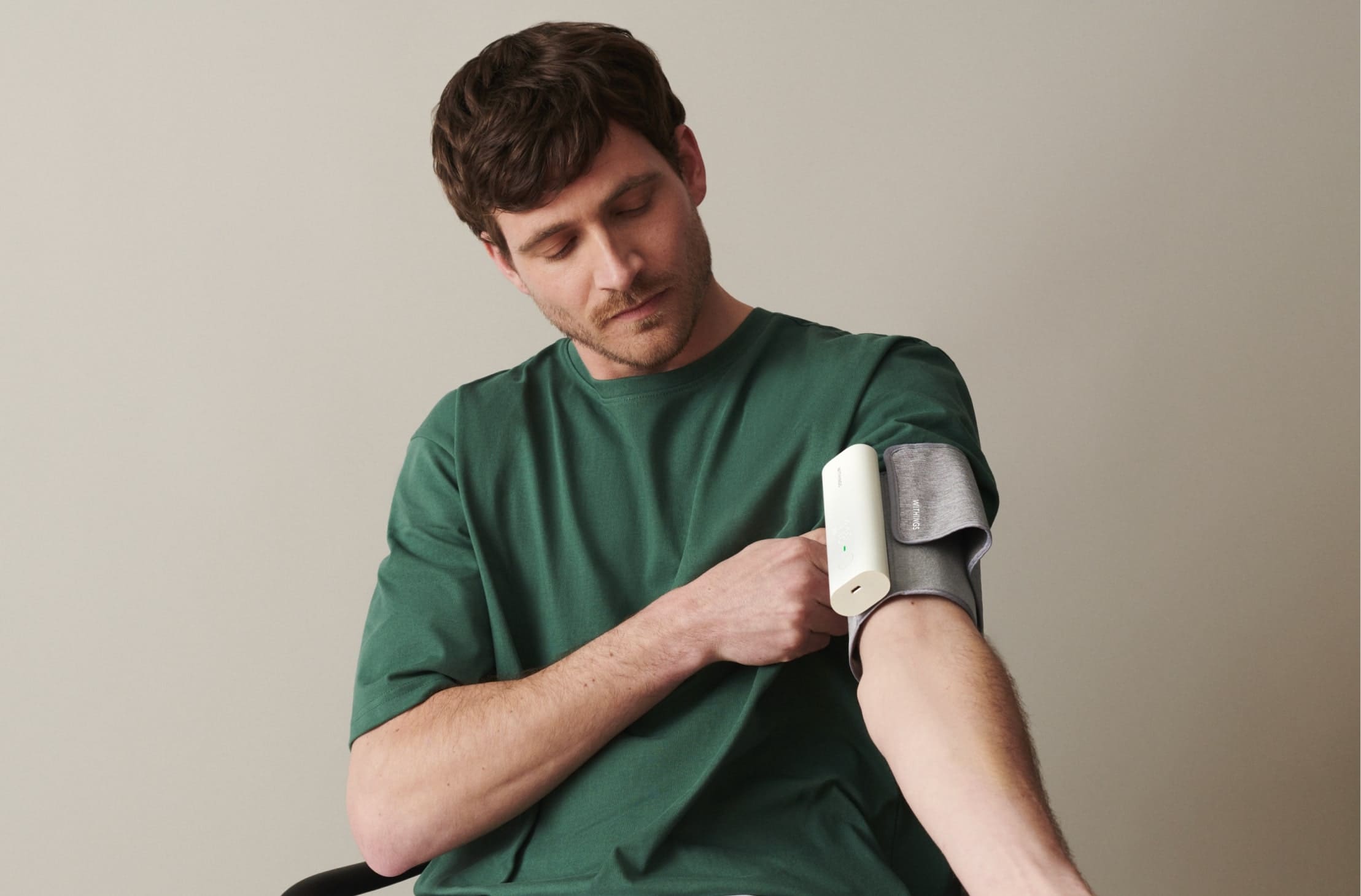
Home blood pressure monitoring
Learn how to use Withings home blood pressure monitoring devices to track and manage high blood pressure efficiently. Get reliable insights...
Before you continue
Website version do not match with your country.
Pricing and product availability may vary by region.


A healthy water percentage is essential to your body’s functions. But why is hydration so essential, and is there an ideal body water range? How can you calculate your body water percentage? What are the signs of dehydration and excess body water? Read on to find out.
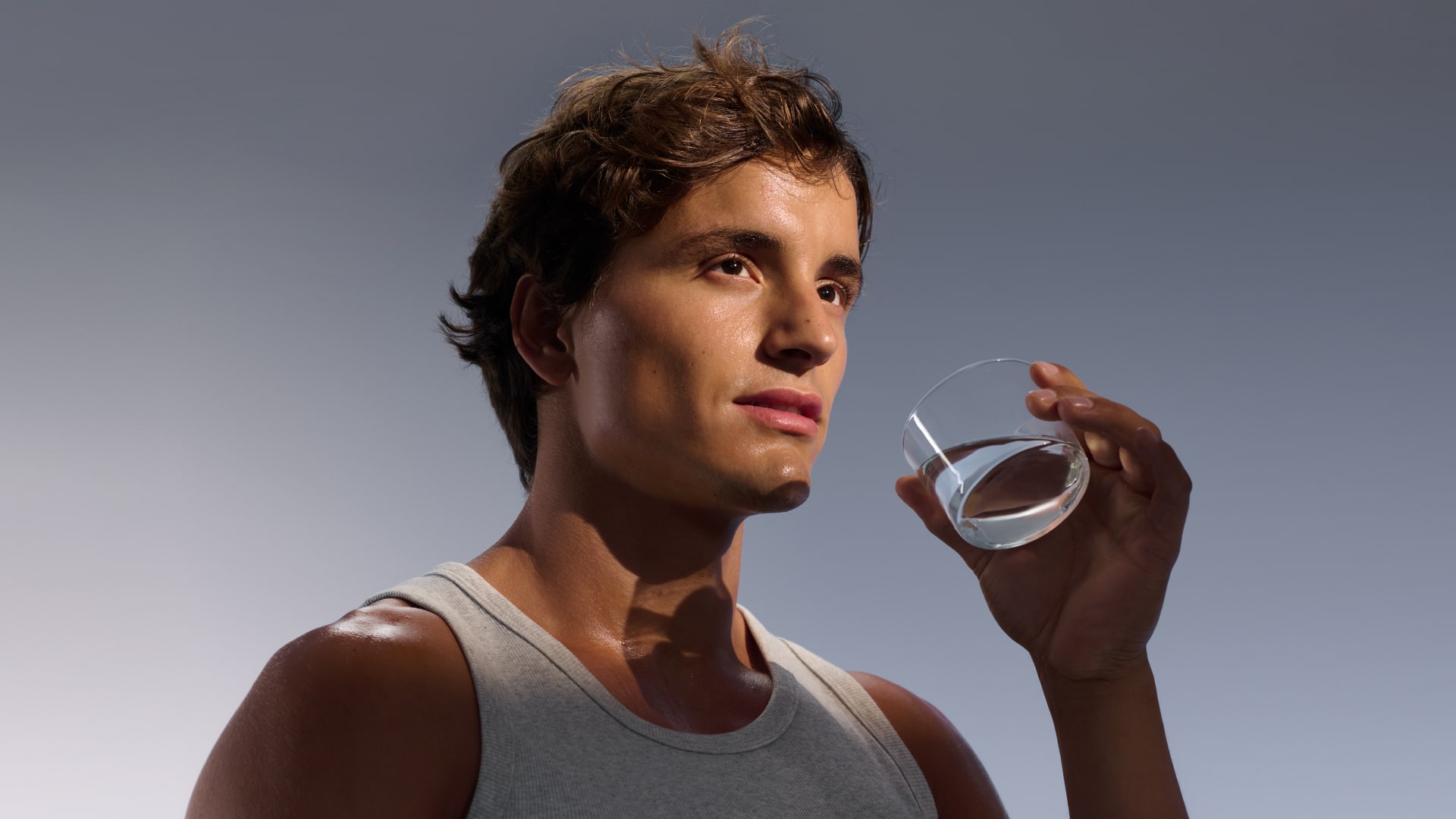
Your body consists of up to 60 percent water. Water is essential for health—it helps to regulate temperature, hydrate skin, and lubricate joints. And there’s more—it helps maintain your blood pressure, flush body waste, and deliver oxygen throughout the body, among many other benefits.
Hydration levels can even affect the brain: In a 2014 article in ACMS’s Health and Fitness Journal, the authors note that even mild dehydration—defined as 1–2% loss of body water—can affect cognitive function, including attentiveness, critical thinking skills, and memory.
So, good hydration is important — but how can you make sure your body water is balanced?
Your body water percentage is the amount of water in your body, expressed as a percentage of your total weight.
Water is essential to your body’s function: your brain and heart, for example, are 73% water, and your lungs are 83% water. Even your bones are 31% water. In an article in the Journal of Physiological Anthropology and Applied Human Science, “The Turnover of Body Water as an Indicator of Health,” the authors noted, “Water homeostasis (also known as fluid balance) is essential for healthy living,” and theorized that healthy people may have a higher body water turnover than unhealthy people.
"If so, body water turnover can be an indicator of human health."
Source: H. Shimamoto, S Koyima, J. Physiol Anthropol Appl Human Sci. 2000
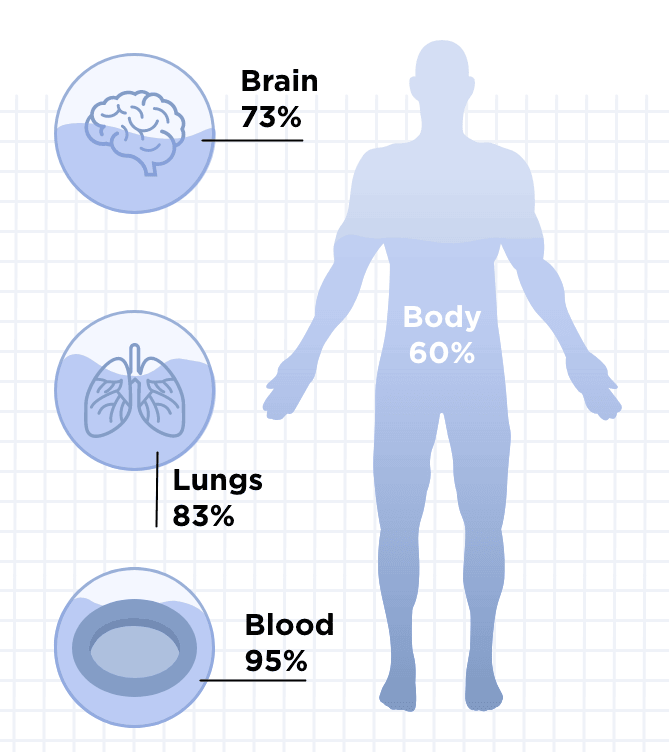
Body water declines as you age, but it will remain above 50 percent for most, if not all, of your lifetime.
The normal range for adult women varies between 45% and 60%.
For men, the ideal body water percentage fluctuates between 50% and 65% of the total body.
In babies, that number is much higher. The norm is considered to be between 75% and 78%, dropping to 65% by one year of age.
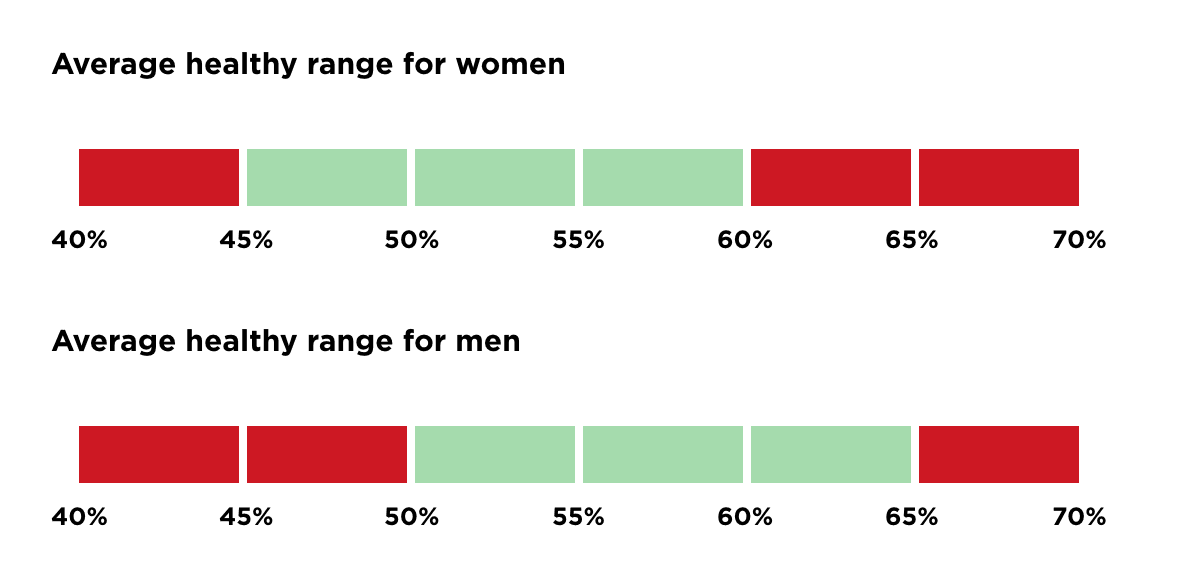
Keep in mind, too, that body water can change during pregnancy. One study in the American Journal of Clinical Nutrition, which used bioelectrical impedance to measure total body water in pregnant women, found that “TBW increased significantly during pregnancy, then decreased postpartum.”
Body water percentage can be measured using several methods. For example, in a method called dilution, or hydrometry, the person being measured provides body fluid samples in a clinical setting. These samples are analyzed for isotope levels to calculate total body water and body fat mass. Another method, bioelectrical impedance analysis, a feature available in some smart scales, can measure the percentage of water in your body as part of your total body composition.
If you want to estimate your body water, you may want to try the Watson formula, reported in a 1980 study entitled “Total Body Water Volumes for Adult Males and Females Estimated From Simple Anthropometric Measurements” in the American Journal of Clinical Nutrition.
2.447 – (0.09145 x age) + (0.1074 x height in centimeters) + (0.3362 x weight in kilograms) = total body water (TBW) in liters
–2.097 + (0.1069 x height in centimeters) + (0.2466 x weight in kilograms) = total body weight (TBW) in liters
You can find many body water calculators that use this method. Although many other formulas are available, some studies, such as a 2001 report in Nephrology Dialysis Transplantation, have found that the Watson formula is the most accurate.
Hydration has a number of health benefits. As we mentioned, water helps to regulate your body temperature, lubricate your joints, and assist in digestion. Your blood helps to carry glucose, oxygen and and nutrients to your cells, and your kidneys get rid of waste products that are no longer needed in your body. Water is essential to both.
Your body has a complex system of physiological controls to maintain fluid balance. In an article in Nutrition Reviews entitled “Water, Hydration and Health,” the authors write, “These mechanisms are sensitive and precise, and are activated with deficits or excesses of water amounting to only a few hundred milliliters.” In other words, even a tiny bit of water can make a big difference in your body’s fluid regulation.
To maintain body water in a healthy range, some experts recommend drinking 11 cups of day for women and 16 cups a day for men, but keep in mind: While staying hydrated is important, watch out for sugar-sweetened fruit juices and sodas.
High-sugar diets are linked to an increased risk for heart disease, obesity, high blood pressure, Type 2 diabetes, and other conditions.
Water requirements may change during exercise. Some research has shown that athletes tend to underestimate the amount of water they need to stay hydrated.
As a guideline, Mass General Brigham Hospital suggests drinking 17 to 20 ounces of water 1 to 2 hours before your workout, between 8 and 10 ounces 20 to 30 minutes before you begin your workout, and another 8 ounces every 15 minutes during your workout. If you’re sweating heavily or losing weight during your workout, you may need to drink more.
Body water deficit can be dangerous. Symptoms of mild or moderate dehydration include thirst, headache, dry mouth, muscle cramps, and dark yellow urine. You may also not urinate very much.
Symptoms of severe dehydration in adults may include dizziness, rapid heartbeat or breathing, very dry skin, sleepiness or lack of energy, and fainting. Symptoms in babies and small children may differ, and include no tears when crying, dry diapers for 3 hours or longer, dry mouth or tongue, and sunken eyes. Severe dehydration is a medical emergency and should be treated immediately.
Dehydration can lead to serious consequences, including heat injury, seizures, urinary and kidney problems, and hypovolemic shock, when low blood volume causes a drop in blood pressure and oxygen in your body. If left untreated, it can lead to death.
Hydration is essential to your body’s function, and knowing your body water percentage can help you understand more about your overall health. Calculating your body composition with a Withings scale may be able to tell you whether you have a healthy water percentage.

Home blood pressure monitoring
Learn how to use Withings home blood pressure monitoring devices to track and manage high blood pressure efficiently. Get reliable insights...
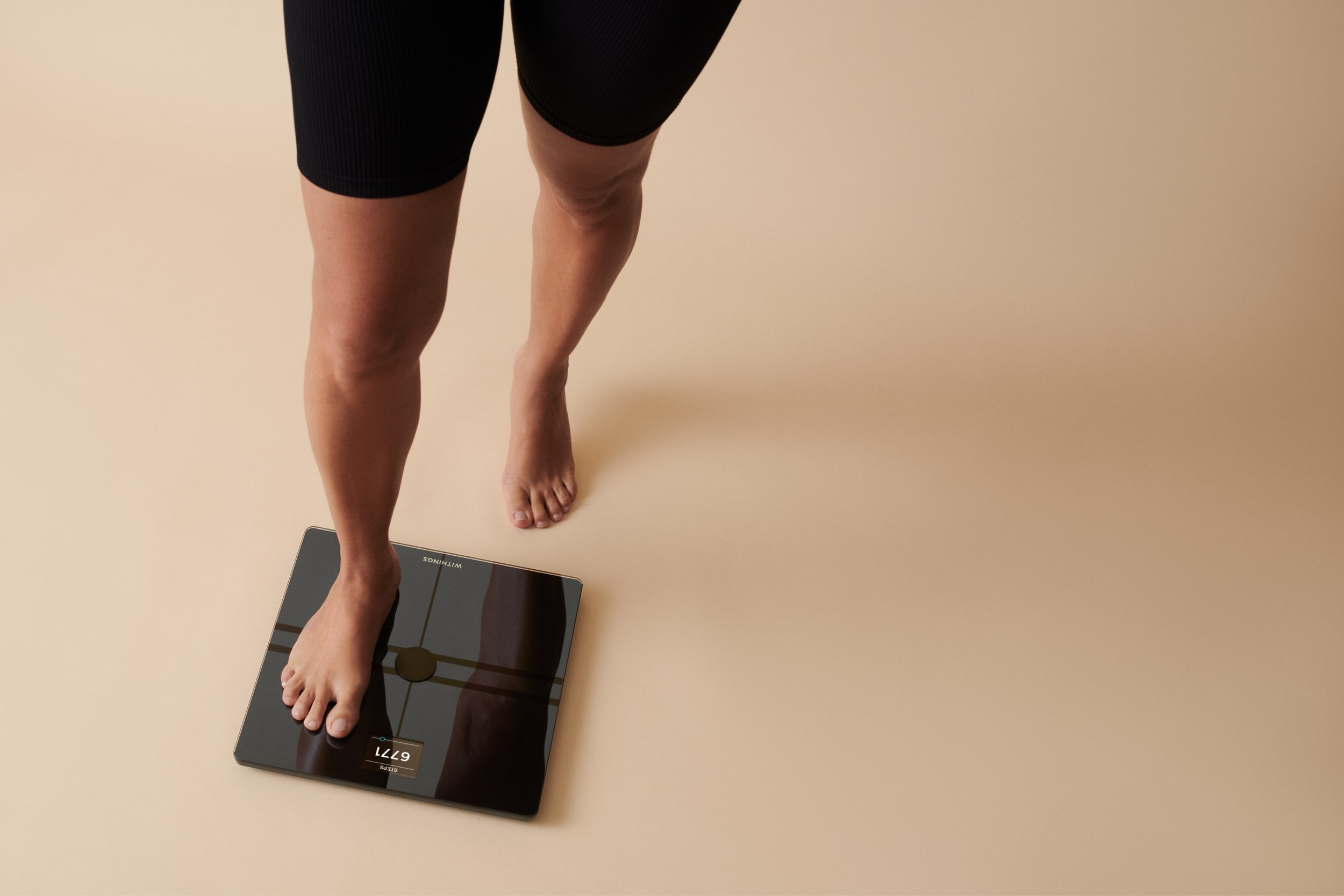
About Bioelectrical Impedance Analysis (BIA)
Bioelectrical impedance analysis (BIA) measures body composition using low-voltage currents. Learn how BIA works, its accuracy, and its...
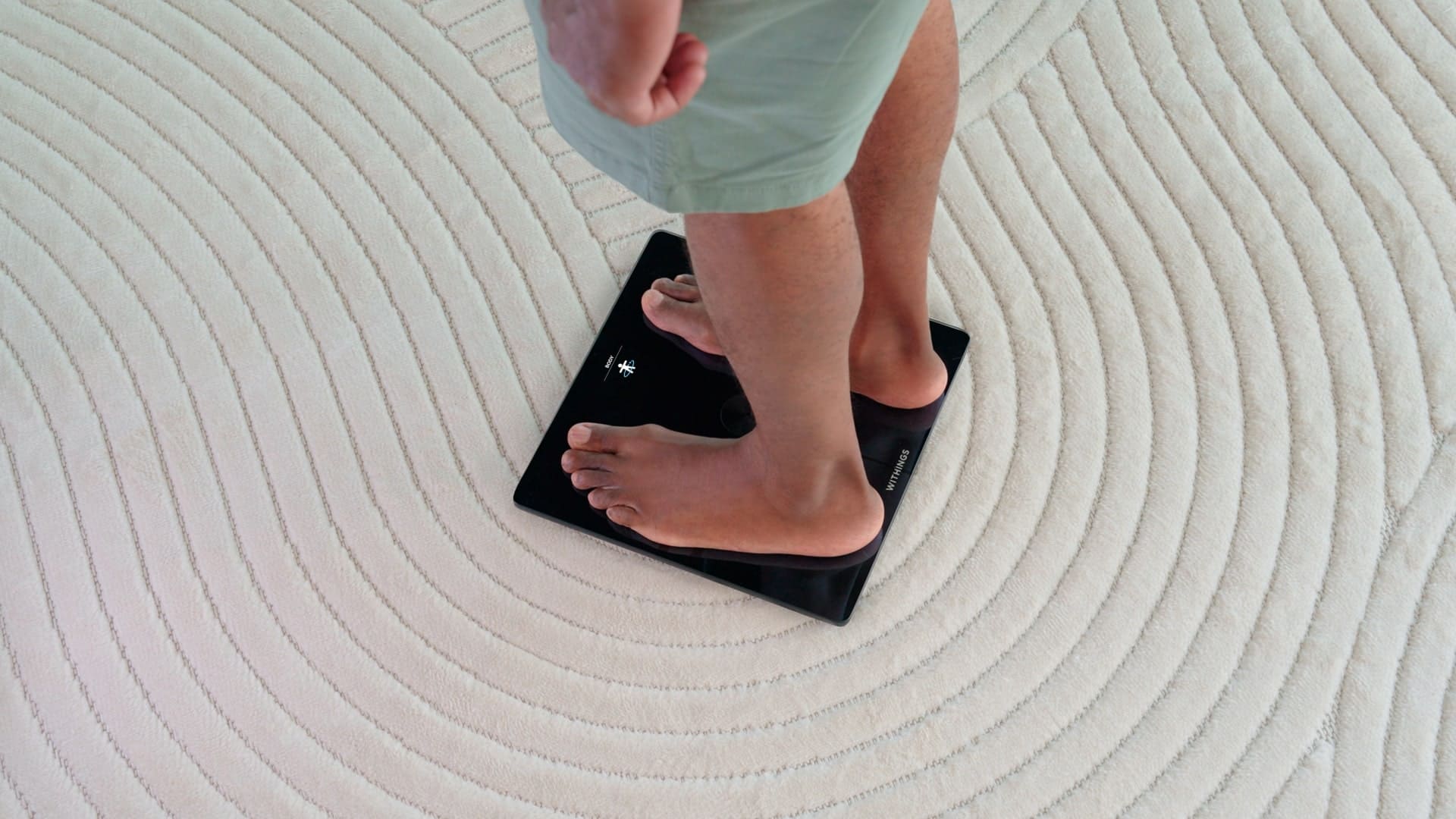
Weight scale accuracy: How reliable are bathroom and digital scales?
Discover what determines weight scale accuracy, how bathroom and digital scales compare, and tips to optimize your weight measurements for...

Weight loss goals: How to set realistic and achievable targets
Learn how to set realistic weight loss goals that work. Discover the science, SMART strategies, and tips to achieve your target weight...
Join millions of users who are improving their health with Withings. Sign up to discover the entire Withings ecosystem, our latest products, and exclusive offers.
By registering, you agree to receive advertising e-mails from Withings. However, if you change your mind, you can unsubscribe at any time.

